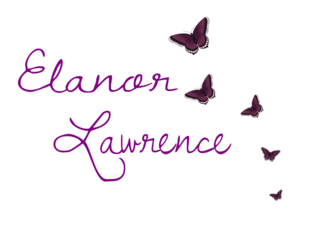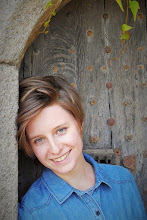I’ll admit it: I’m a die-hard plotter. Before I wrote WANDER, my outline document filled with character sketches and minor plot outlines clocked in at 45,000 words. It was pretty much a novel in itself. This allowed me to write the entire story in just 19 days, because I already knew what was going to happen. Now, I know some people just can’t outline, and that’s fine. Many of my favourite published books are written by ‘pantsers’. However, I think some skill in outlining would greatly benefit many beginning writers. Here’s why.
Often times when people hear about all their favourite authors writing without an outline, they think ‘I can do that too!’ and so they pull out pen and paper and start writing. Five pages later, the story is already fizzling out. Why? Because they don’t know their characters, or their setting or the conflict. Even pantsers have a pretty good idea of these three things before they start writing. Remember this: Plotting may not be essential, but you need to have a good idea of Characters, Setting and Conflict. Even pantsers do some work ahead of time, especially figuring out their characters.
If you’re writing any sort of mystery or suspense, or basically any novel that has a secret revealed near the end, you’ll need some sort of lead up to it. A classic example would be the detective novel, where all the clues are there for the reader, but it’s only at the end that everything comes to a climax and the secret is revealed. In most novels there will be some sort of big revelation at the end, and some sort of foreshadowing earlier on. I enjoy plotting ahead of time, because that way I can put the foreshadowing in when I’m writing the appropriate scene, rather than forcing it in later to an already completed manuscript.
The main thing I enjoy about plotting is that it forces you to figure out the key areas of Characters, Setting and Conflict. You need to know your characters because you’re planning their actions. You need to know the setting, especially if it’s fantasy or a book that involves travelling. And most importantly, plotting forces you to figure out the true conflict of the story and allows you to plan scenes in order so that the pacing all works out.
Plotting certainly isn’t for everybody. Maybe you just really aren’t a plotter. But if you’re currently struggling with a first draft that isn’t going anywhere, or have five incomplete novels in your drawer, or a story with a main character who seems to be constantly changing, then it may well be a good idea to sit down and write up a bit of an outline.




My plotting is mostly done all in my head, with only a few big and general ideas written down.
ReplyDeleteThe one thing I always make sure to do is know the ending when I start writing. Maybe not the precise details, but definitely the basic stuff. I actually already know the ending scene for Mystery Novel.
Without knowing the ending, I would never finish (thereby explaining the numerous unfinished novels of my childhood, haha).
That certainly works. I personally like everything to be written down (hence the 45k plotting document) but if you can keep it all in your head, kudos to you! And knowing the ending is a great idea. I like at least knowing who is the bad guy, etc... In my story SNOW CIRCLES I don't exactly know how it's going to end, but I know who the murderer is and why they did it.
ReplyDeleteThe only thing I do ahead of time are my characters and setting (mostly in my head, sometimes the characters surprise ME in the story). I dunno why, but I just like the plot to play in itself with the ending in mind.
ReplyDeleteSee, I don't like plotting. I dunno why. For The Hiddens, I only plotted the first quarter or so of it, then stopped. For my new story idea, I'm doing the story line thing. (Exposition, initiating event, rising action, climax, falling action) and that's about it.
ReplyDeleteI'm still changing stuff around in The Hiddens, and had to figure out the ending about a month after I'd already started writing, which of course put me behind in writing it. But I don't think I'll plan the rest of the novel.
I am a pantser all the way... but plotting tendencies have been beginning to come out, especially when I started working on my first dystopia. I feel like some genres are easier to make up as you go along, general fiction being one of them.
ReplyDeleteIf I do any kind of outline, it's always a character one. Because, to me, it doesn't matter if I know my exact plot, but I need to really flesh out and know my characters in order to make them feel real to me.
Personally, I always outline the whole plot, but I think you guys have hit on the essential part. You need to know your characters. If you're writing a dystopia or fantasy or something you also need to know your world, but if you're writing general fiction, the characters are most important. Because, after all, what is a story other than people doing things? As long as you know your people (and your world) a story shouldn't be that far away. :) I think the mistake that beginning writers make is having no idea of either their world or their characters. Plotting would help those people-- it certainly helped me!
ReplyDelete